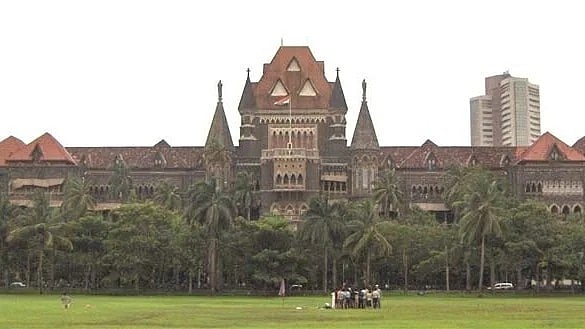Lakshman Madavi lost the paddy crop in the meagre one acre he has in Dadapur Village, which lies in a remote part of Gadchiroli. The reason is neither heavy rains nor disease. It is a herd of elephants. Its movement damaged the standing crop in Madavi’s and a few others’ farms. The damage, even the elephants’ presence, have become a concern for the villagers. Yet no one harbours any animosity towards the animals. The credit for this goes to well-coordinated efforts by different stakeholders interested in conservation.
People realised that the elephants were coming close when they heard trumpets amid heavy rain, Madavi said. “Fortunately, they did not come too close to the village. But they damaged our crop as they appeared to be trying to find a route to their new destination. I have been promised by forest staff that I will be compensated in time,” he said.
The Forest Department has roped in people who specialise in reducing human-animal conflicts and have adopted technological solutions to rule out any untoward incident that may put conservation efforts in jeopardy. It has also decided to speed up the compensation process — to be completed within 24 hours of reporting.
A herd of around 23 elephants entered Gadchiroli’s forests from Chhattisgarh in mid-August. Since then, they have been on the move, often coming close to villages and damaging farms in the process. The same herd had come last year as well and stayed for four-five months before returning to Chhattisgarh. Now they have come again, forest officials and conservationists are curious if the herd is trying to make Gadchiroli a permanent habitat. While this comes as good news from the conservation perspective, it can create problems since Gadchiroli does not have records of resident wild elephants for the past two-three centuries, although it was once thought to be an important elephant corridor.
One person, who was reportedly under the influence of alcohol, was killed by these elephants last year. This year, however, no such incident has been reported. Only one house in Waghbumi village was damaged when the herd had just entered Gadchiroli. Forest staff are now monitoring their movement round the clock.
Dhananjay Waybhase, deputy conservator of forest (Wadsa Division), said three teams with different responsibilities have been formed. “Our forest staff keeps a record of elephant movement using their sources in villages. Another team called ‘hulla’ remains stationed in the village throughout the night and stops elephants from entering. The third team provides technical support such as the use of drones to track the herd and helps the ‘hulla’ team drive it away.”
Thermal cameras on drones let the hulla team know if the elephants have turned back to the jungle or are trying to enter the village from a different direction.
The hulla team has people from West Bengal-based Stripes And Green Earth (SAGE) Foundation, who specialise in mitigating human-elephant conflict. It gives real-time lessons to villagers on how to deal with the animals. This involves the use of loud sound and a special type of flambeau (flaming torch).
Pintu Mahata, an elephant biologist who leads the team, said: “We have developed a technique that deters elephants from entering villages, that too without making them angry. We have so far stopped this herd from entering villages five times.” Unlike West Bengal, the conflict in Gadchiroli is manageable as people have shown great restraint and elephants too prefer to stay away from human settlements most of the time, Mahata said.
Elephants generally survive on leaves of green bamboo, green grass, chironji (Cuddapah almond/Buchanania lanzan), which is abundant in Gadchiroli’s forest. However, they enter human settlements to eat grains or mahua flowers, and if they happen to be in the way. No elephant from this herd has been reported to have damaged any house for food this year. The Forest Department has advised people to store their grains and mahua flower stocks in pucca houses.
Public awareness is at the centre of preventing conflict. Forest staff and a team of the Pune-based RESQ Charitable Trust are holding programmes in different villages. Neha Panchamia, founder and president of RESQ, said the objective is to help people understand the animals’ behaviour and teach them how to deal with their presence. “Our observations suggest that retaliations from people are lower if they are aware of why the [wild] animals are here. We tell villagers how to remain safe and what to do when they encounter elephants. We also explain to them the process of getting compensation for the damages.”
Bhimrao Vaidya, from Dadapur Village, also lost some of the paddy crop on his three-acre farm. “I have contacted the local forest guard to initiate the compensation procedure. Why would we have a problem if we are properly compensated and protected from elephants?” he said.
The Forest Department said technical tools, capacity building and lessons from the last year have helped them address the challenges smartly. The developments suggest that Gadchiroli has become a favourable place for elephants, said Sagnik Sengupta, who heads SAGE Foundation. “People in Gadchiroli are not trying to harm elephants. The crop damages by these elephants are negligible compared to what is happening in other parts of India. The forests here are also dense and continuous. We hope elephants will stay here.”







